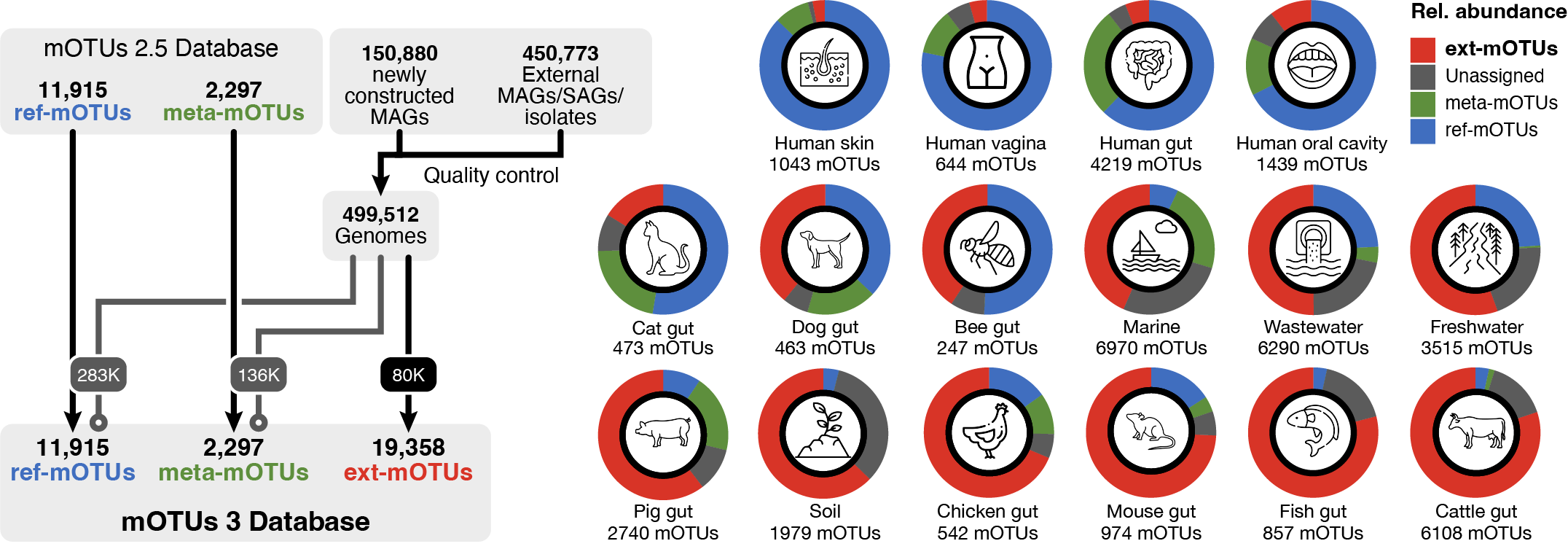Abstract
Taxonomic profiling is a fundamental task in microbiome research that encompasses detection and quantification of microorganisms in biological samples. Many profiling tools for profiling from shotgun metagenomic data rely on reference genomes, introducing estimation biases because many microbial taxa are not represented in reference genome databases – not even for very well-studied environments such as the human gut. The mOTUs (MG-based Operational Taxonomic Units) approach leverages well-established universal, single-copy, protein-coding marker genes to profile microbial abundances in shotgun metagenomic data. This approach allows the mOTUs algorithm to address both cultivation biases (since universal marker genes can be directly extracted from metagenomes even for uncultivated organisms) as well as genome size biases, which together results in very high precision and recall as evident from the latest Critical Assessment of Metagenome Interpretation (CAMI 2) challenge.
For many years, we have been developing mOTUs jointly with Shinichi Sunagawa’s group at ETH Zurich, with Daniel Mende’s group and UMC Amsterdam and with Peer Bork’s group at EMBL Heidelberg. mOTUs is published under the GPL-3 licence.

mOTUS has been used in the following publications:
- Meta-analysis of fecal metagenomes reveals global microbial signatures that are specific for colorectal cancer
- Removal of false positives in metagenomics-based taxonomy profiling via targeting Type IIB restriction sites
- Unravelling the collateral damage of antibiotics on gut bacteria
- Biosynthetic potential of the global ocean microbiome
- Narrow host range phages infect essential bacteria for water purification reactions in groundwater-fed rapid sand filters